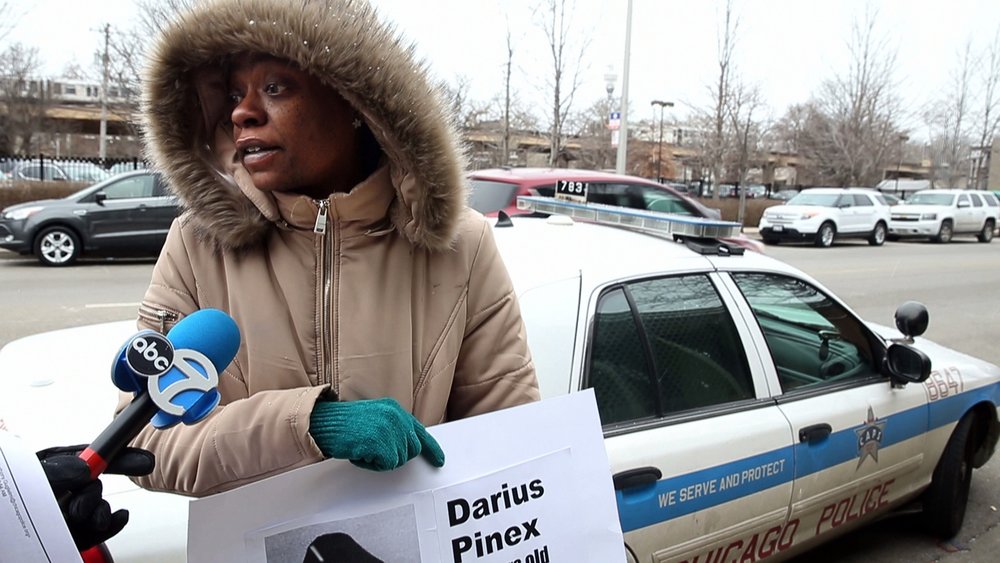White Chicago Cop Might Lose his Job After Lying Over & Over to Cover Up the Murder of Darius Pinex
/
From [HERE] and [HERE] Chicago police Superintendent Eddie Johnson has moved to fire an officer accused of lying about the circumstances that led him and his partner to fatally shoot a motorist on the South Side more than six years ago.
Johnson's decision comes about six months after the Independent Police Review Authority found that Officer Raoul Mosqueda violated Police Department policies in the 2011 fatal shooting of 27-year-old Darius Pinex. IPRA had recommended to Johnson that Mosqueda be fired.
In a 34-page report issued in February, IPRA noted discrepancies between a police dispatch recording and the testimony repeatedly given by Mosqueda about how the shooting unfolded.
In its report, IPRA concluded that Mosqueda lied on three occasions — during his initial statement to IPRA investigators immediately following the Jan. 7, 2011, shooting, at a 2013 deposition for a lawsuit filed by Pinex's family and then on the stand at trial in 2015 over the lawsuit. Even after the trial, Mosqueda stood by his version while giving another statement to IPRA investigators last September, the report said.
On Monday, a police spokesman said Mosqueda was suspended without pay Saturday. He had been stripped of his police powers when IPRA made its recommendation in February.
Days before IPRA recommended his firing, Mosqueda was promoted by the the Police Department to field training officer at a ceremony at Navy Pier.
His case will now be heard before the nine-member, mayoral-appointed police board, which will decide whether he should be fired.
The city settled the lawsuit with Pinex's family in December for about $3.5 million.
Pinex was fatally shot by two police officers during a traffic stop in 2011. Mosqueda and his partner, Gildardo Sierra, fired into a moving car at Pinex even though he had not displayed a weapon.
The first trial had concluded with a jury finding in favor of the city and the officers.
But the case erupted into controversy in January when U.S. District Judge Edmond Chang ordered a new trial and found that Jordan Marsh, then a Law Department lawyer, had intentionally withheld crucial evidence. Marsh resigned, and Mayor Rahm Emanuel hired longtime Chicago lawyer Dan Webb to conduct a third-party review of the department.
In taking the rare action of striking the city's motion for summary judgment from the record, the judge said a reasonable jury could conclude that officers Gildardo Sierra and Raul Mosqueda "lied and covered up" their reasons for stopping Pinex's car the night of the shooting.
Chang wrote in his four-page order that the officers had given inconsistent statements about an emergency dispatch they allegedly heard describing Pinex's Oldsmobile as wanted in an earlier shooting. When the recording finally was produced at trial in April 2015 — after years of city lawyers denying it existed — there was no mention of a shooting or a gun, the judge said.
Chang said a jury could "reasonably reject the lawfulness of the stop."
Sierra and Mosqueda had said the dispatch led them to conduct a high-risk stop of the car, boxing it in to prevent its occupants from fleeing and approaching with their guns drawn.
The officers alleged Pinex put the car in reverse and disobeyed commands to stop, ejecting his passenger, Matthew Colyer. Both officers fired shots, with Mosqueda fatally shooting Pinex in the head. A gun was recovered from the car.
Chang's criticism of Marsh centered on the dispatch the officers claimed to have heard that supposedly called attention to a car similar to the one Pinex was driving. Each officer told the jury at the first trial that he had heard a radio alert and stopped Pinex, believing the car could be connected to an earlier shooting.
It turned out the pair could not have heard such a dispatch because the alert went out over a radio zone different from the one they were operating in.
During the first trial, Marsh told Chang outside the jury's presence that he had located the actual alert that went out over the zone the officers were in on the night in question. That call did not connect a car matching Pinex's to another shooting.
Chang found that Marsh intentionally kept the evidence from him. Marsh had first told the judge he had found the recording that day and later said he actually found it a week before the trial began. Another city attorney, Thomas Aumann, who also has left the department, was chided by the judge as well for not making a reasonable effort to find the recording before a jury was hearing the case. [MORE]





































































































































































































































































